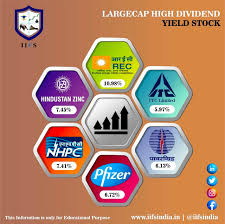
The ability to buy and sell an asset is called liquidity. Liquidity can be used as a tool to determine the speed at which you can make money or how easily your position can be sold after you've made some.
What is forex volatility?
The Forex Volatility is the rate that a currency or foreign exchange markets move in response changes in global events. This includes economic reports, wars and political instability. This can have a major impact on the forex market as a whole and traders should always be aware of the potential for fluctuating prices in their own currency pairs.
The forex market's liquidity can be defined as the number of people actively trading currencies. This number varies depending on when the market opens and where it is located.
Bid-ask spread is the most popular method of assessing liquidity in a foreign currency security. It is the spread between the highest price a person is willing or able to pay and the lowest price he/she is willing to accept for a specific security. The spread is a measure of how liquid a security is.

Volume is another way to assess the liquidity of a foreign exchange market. The more liquid the security, the higher its volume.
Forex is considered one of the most liquid markets in the world, due to the fact that banks and individual traders are always involved in buying and selling vast amounts of currencies. The forex market is very liquid, as there are always buyers and sellers ready to take part in any trade.
No matter if you're a beginner or an expert in forex trading, the liquidity of an investment can make a huge difference to how profitable your trades are. This is because if the market is not liquid, it's likely that there won't be enough buyers to satisfy your orders.
A liquidity providers is a firm that makes market for currency pairs, on behalf other financial institutions. corporations or professional counterparties. They offer spreads they can negotiate both with their customers and other professionals working in the forex markets.
On the forex markets, liquidity providers usually work with the biggest commercial banks and other institutions. The liquidity providers can offer spreads more competitively than they would be able to on their own because they hold significant positions in the currencies on which they make market.

The forex market is also one of the most volatile markets in the world, which is why it's important to know the factors that can affect it. This can help you make more informed decisions about trading.
The forex market is not only the world's most liquid, but also the lowest-risk one for investors. This is because it allows them to quickly convert their cash into real money and avoid all losses. But traders should be mindful of the risks involved in forex trading, and only make a decision after thorough planning.
FAQ
What is the role and function of the Securities and Exchange Commission
The SEC regulates securities exchanges, broker-dealers, investment companies, and other entities involved in the distribution of securities. It enforces federal securities laws.
Can you trade on the stock-market?
The answer is everyone. Not all people are created equal. Some people have more knowledge and skills than others. So they should be rewarded.
Other factors also play a role in whether or not someone is successful at trading stocks. You won't be able make any decisions based upon financial reports if you don’t know how to read them.
These reports are not for you unless you know how to interpret them. You need to know what each number means. You should be able understand and interpret each number correctly.
If you do this, you'll be able to spot trends and patterns in the data. This will help you decide when to buy and sell shares.
This could lead to you becoming wealthy if you're fortunate enough.
How does the stock markets work?
A share of stock is a purchase of ownership rights. Shareholders have certain rights in the company. A shareholder can vote on major decisions and policies. He/she may demand damages compensation from the company. And he/she can sue the company for breach of contract.
A company can't issue more shares than the total assets and liabilities it has. This is called capital adequacy.
Companies with high capital adequacy rates are considered safe. Low ratios can be risky investments.
How can I find a great investment company?
You want one that has competitive fees, good management, and a broad portfolio. Fees vary depending on what security you have in your account. Some companies charge no fees for holding cash and others charge a flat fee per year regardless of the amount you deposit. Others may charge a percentage or your entire assets.
You also need to know their performance history. Poor track records may mean that a company is not suitable for you. Avoid low net asset value and volatile NAV companies.
It is also important to examine their investment philosophy. A company that invests in high-return investments should be open to taking risks. If they are not willing to take on risks, they might not be able achieve your expectations.
Statistics
- US resident who opens a new IBKR Pro individual or joint account receives a 0.25% rate reduction on margin loans. (nerdwallet.com)
- Ratchet down that 10% if you don't yet have a healthy emergency fund and 10% to 15% of your income funneled into a retirement savings account. (nerdwallet.com)
- Individuals with very limited financial experience are either terrified by horror stories of average investors losing 50% of their portfolio value or are beguiled by "hot tips" that bear the promise of huge rewards but seldom pay off. (investopedia.com)
- For instance, an individual or entity that owns 100,000 shares of a company with one million outstanding shares would have a 10% ownership stake. (investopedia.com)
External Links
How To
How can I invest into bonds?
A bond is an investment fund that you need to purchase. You will be paid back at regular intervals despite low interest rates. This way, you make money from them over time.
There are several ways to invest in bonds:
-
Directly buy individual bonds
-
Purchase of shares in a bond investment
-
Investing through an investment bank or broker
-
Investing through a financial institution.
-
Investing through a pension plan.
-
Invest directly through a broker.
-
Investing through a Mutual Fund
-
Investing via a unit trust
-
Investing with a life insurance policy
-
Investing with a private equity firm
-
Investing via an index-linked fund
-
Investing with a hedge funds